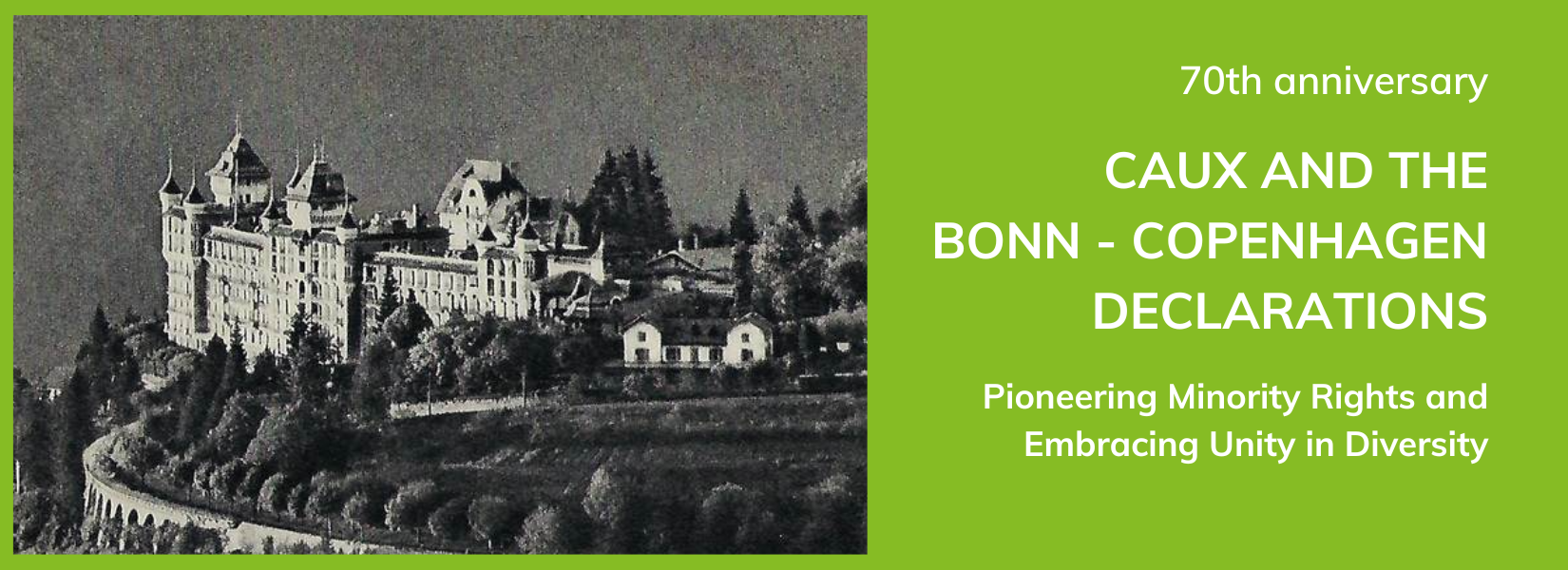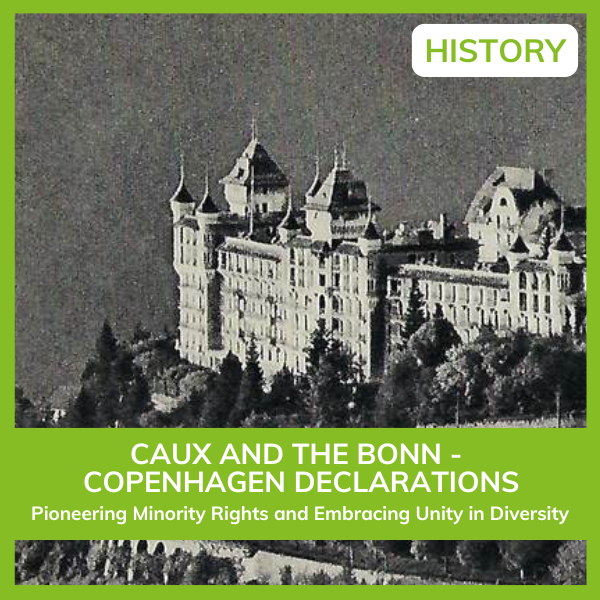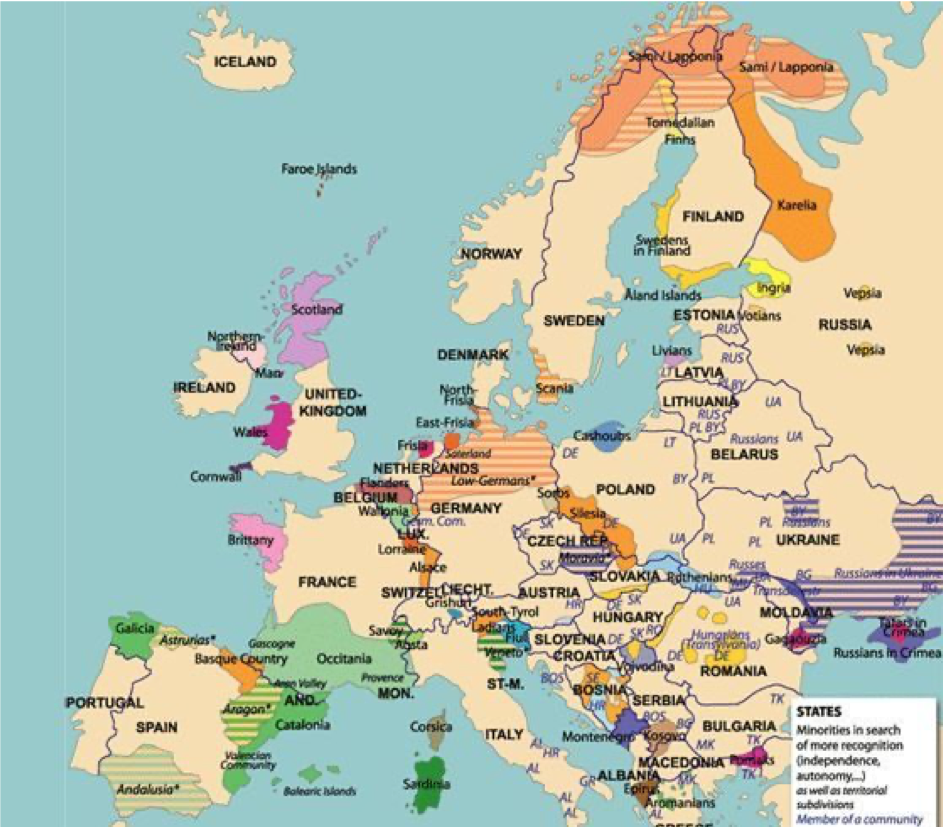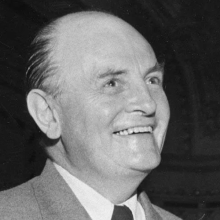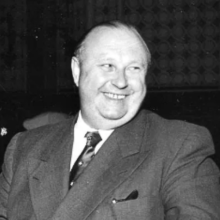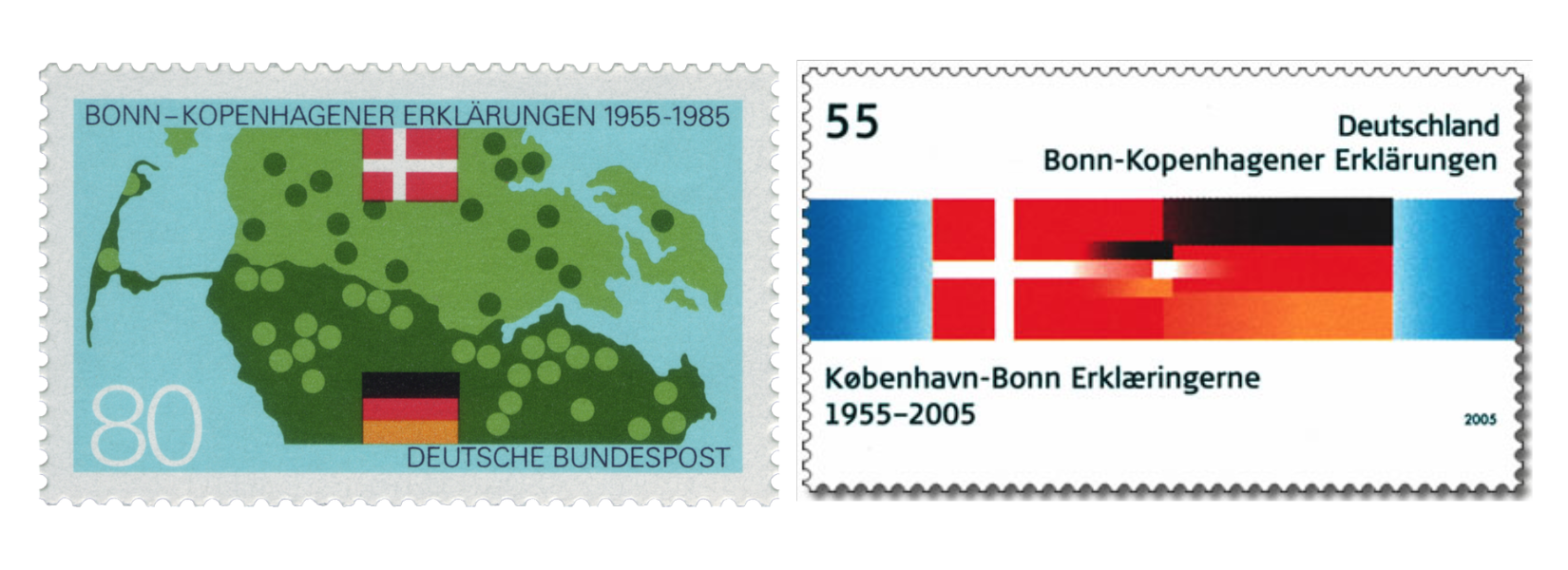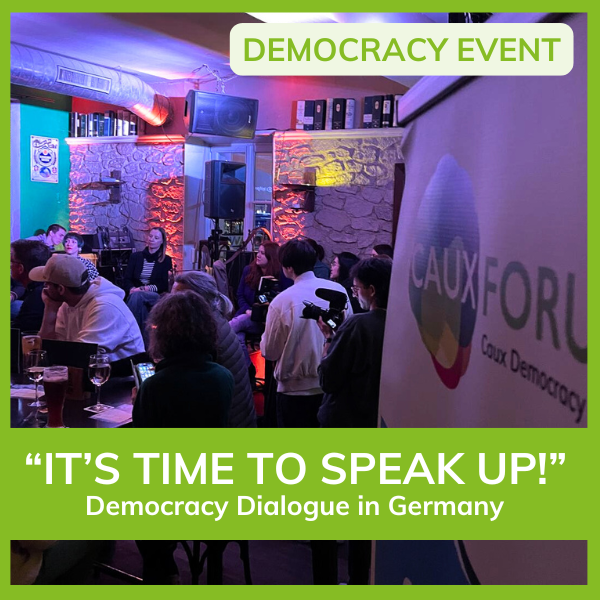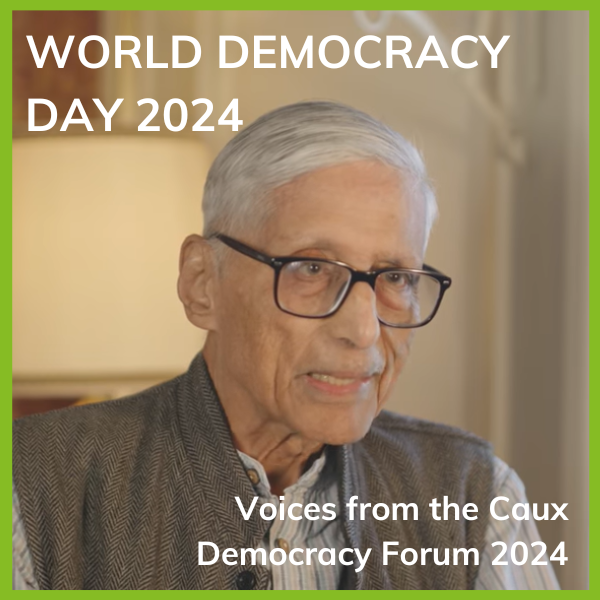Caux and the Bonn-Copenhagen Declarations: Pioneering Minority Rights and Embracing Unity in Diversity
Co-produced by Christoph Spreng and Ulrike Ott Chanu
29/03/2025
On 29 March 2025, Bonn-Copenhagen Declarations of 1955 mark their 70th anniversary—a milestone with lessons that extend far beyond Denmark and Germany. History has shown that minorities often bear the brunt of conflict, repeatedly treated as outsiders or expendable pawns in power struggles. The Declarations acknowledge this injustice and emphasize the need for societies to confront their own role in discrimination and division—an essential step in peacebuilding and sustaining democracy. At a time when democratic values are under increasing strain worldwide, the principles behind these declarations serve as a powerful reminder that peace requires both justice and self-reflection.
Christoph Spreng, advisor to the Standing Committee CINGO and co-organiser of the Caux Democracy Forum, reflects on the significance of the Declarations.
_______________________________________________________________________
At the recent World Forum for Democracy in Strasbourg, a young student from Georgia surprised me because he knew right away what I was talking about when I mentioned the Bonn-Copenhagen Declarations of 1955 which will be celebrating their 70th anniversary on 29 March this year.
In the aftermath of World War II, tensions between Germany and Denmark remained high, particularly in the border region of Schleswig-Holstein and Southern Jutland, home to both Danish and German minorities.
In this context, the Caux Palace in Switzerland, through the international conferences organised by Initiatives of Change (formerly Moral Re-Armament), became a vital space for dialogue. Between 1946 and 1950, it hosted 888 Danish and 3,113 German visitors, including key figures seeking to rebuild trust and cooperation across national and cultural divides.
The encounters at the Caux Palace were more than just a meeting place—they were a catalyst for action. Personal initiatives emerged, such as Danish educators moving south across the border to work in Flensburg to support the recovery through education.
Another striking example was Urte Hvidt, a Dane of German origin, who faced hostility as a child due to her background. Her family’s journey of healing, supported by Initiatives of Change, led them to establish a house near the border as a meeting place, demonstrating how individual efforts contributed to a broader transformation in attitudes.
The encounters at the Caux Palace were more than just a meeting place—they were a catalyst for action.
Beyond grassroots initiatives, the conversations at the Caux Palace also influenced high-level diplomacy. Informal meetings in Copenhagen and Hamburg, facilitated by Initiatives of Change members, played a crucial role in concluding the Bonn-Copenhagen Declarations.
Danish leader Ole Björn Kraft and German cabinet member Heinrich Hellwege, both attendees of Caux conferences, explored the resolution to their respective minority issues. This led to the idea of independent but simultaneous Declarations rather than an international treaty. This vision quickly gained support, culminating in the signing of the Bonn-Copenhagen Declarations by Danish Prime Minister H.C. Hansen and German Chancellor Konrad Adenauer on 29 March, 1955.
Seventy years later, the Bonn-Copenhagen model remains a testament to the role of active listening and dialogue in establishing minority rights. As political polarisation and repression increase in many places, the Declarations of 1955 serve as a clue to upgrade the value of unity in diversity and serve as a reminder that reconciliation, rooted in trust and personal engagement, is key to democratic values and resilience.
The upcoming Caux Democracy Forum (8–12 July 2025) offers an opportunity to reflect and gain lessons from the past. By focussing on the importance of democratic values and addressing challenges such as disinformation, polarisation, human rights, and declining public trust in institutions, this summer’s forum on democracy continues Caux’s tradition of fostering inclusive and cooperative solutions.
As Rajmohan Gandhi, grandson of Mahatma Gandhi, reminds us: “We are one humanity.” This message is most likely also the dream of the young students from Georgia met at the World Democracy Forum.
Read more background information about the story of the Bonn-Copenhagen Declarations
As political polarisation and repression increase in many places, the Declarations of 1955 serve as a clue to upgrade the value of unity in diversity and serve as a reminder that reconciliation, rooted in trust and personal engagement, is key to democratic values and resilience.
__________________________________________________________________________________________________________
The Caux Democracy Forum (8–12 July 2025) in Caux, Switzerland, aims to inspire, equip, and connect individuals and organisations dedicated to strengthening democracy, human rights, and civic engagement globally.
Find out more and register now
